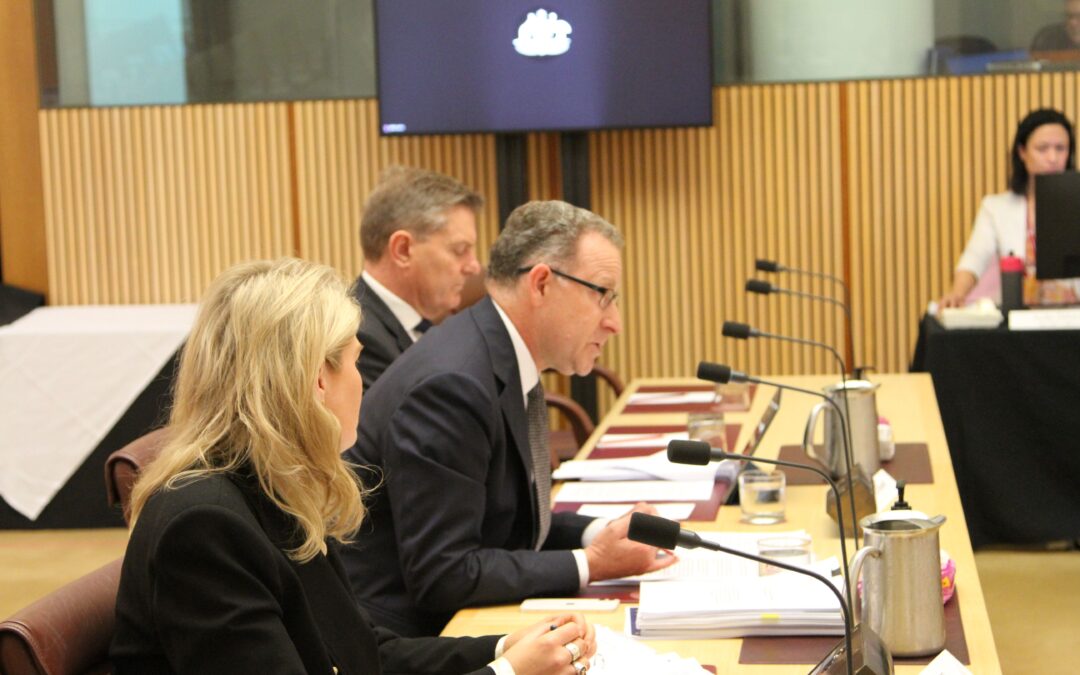
by Ashley Gardiner | Nov 28, 2023 | Media Release
The government has blindsided business with 81 amendments to its industrial relations legislation, most of which are a complete surprise.
“The House of Representatives will have no time to properly consider the changes before the government rams the bill through,” ACCI chief executive officer Andrew McKellar said.
“The government has failed to fix the fundamental issues in the bill.
“None of the government’s amendments deal with increased powers for union officials, road transport, the complexity of the labour hire changes or the extraordinary scope of the employee-like changes which go well beyond laws currently regulating gig companies.
“The legislation is a complex, productivity-sapping imposition that will drive up costs for businesses and consumers.
“The government should delay further consideration of this bill in the House of Representatives until the Senate committee has reported in February.
“Furthermore, reports that the government has agreed to support three contentious amendments proposed by the Greens necessitates the need for further consultation and consideration.
“Business continues to support the proposal of senators Jacqui Lambie and David Pocock to split the bill, so that the non-contentious changes can be passed before Christmas.”

by Ashley Gardiner | Nov 22, 2023 | Media Release
Direct assistance for small and medium enterprises to counter cyber risks has been welcomed by Australia’s largest and most representative business network.
“Several of the initiatives announced with the strategy will directly assist small and medium businesses in preparing and responding to increasing cyber-attacks”, ACCI chief executive officer Andrew McKellar said.
Minister for Home Affairs Clare O’Neil released the 2023–2030 Australian Cyber Security Strategy and Action Plan today.
“The cyber health-check and Small Business Cyber Security Resilience Service address the concerns ACCI has continuously raised about the importance of direct and tailored assistance for small businesses if we are to uplift the capability of our small business sector.
“Cyber security is both a challenge and an opportunity for Australia, showing how a strong, ongoing collaboration between government and industry will uplift our cyber capabilities.”
An expanded national cyber security awareness campaign and clear cyber guidance for businesses to navigate governance obligations will provide further support.
“ACCI’s submission called out the complex and prohibitive structure for reporting cyber incidents and seeking assistance, and we welcome the initiatives designed to simplify this by acting as a one-stop-shop.”
“It will be critical that the government partners with industry associations and chambers of commerce to implement this strategy successfully.”
ACCI CEO Andrew McKellar is attending today’s inaugural meeting of the new Executive Cyber Council to coincide with the strategy’s release.
by Ashley Gardiner | Nov 16, 2023 | Media Release
The Australian Chamber of Commerce and Industry has today elected Mark Birrell AM as President.
Mr Birrell is a full-time non-executive director with extensive experience in the law and finance and is currently a non-executive director of Transurban Limited and a board member of the Geneva-based International Organisation of Employers.
He has served in leadership roles across public and private boards, was President of the Victorian Chamber of Commerce and Industry (2013-16) and served as a Victorian Cabinet Minister (1992-99).
“There’s never been a more important time for business to have a strong voice. You’ll see ACCI fully focussed on positive policy ideas that help Australia grow – so living standards rise and businesses thrive,” Mr Birrell said.
“It’s an honour to lead this nation’s largest and most representative business network, which has a history in Australia stretching back to the 1820s.”
The ACCI Annual General Meeting in Canberra today also elected Mr Lyall Gorman as Deputy President.
Mr Gorman is currently the Chief Executive Officer of Evolve Housing Limited and President of Business NSW.

by Ashley Gardiner | Nov 14, 2023 | Media Release
The nation’s largest and most representative business network, the Australian Chamber of Commerce and Industry, is appearing before the Senate inquiry into the government’s industrial relations legislation today.
The committee hearing comes a day after the Senate voted to split the non-contentious aspects of the omnibus legislation.
“There is no reason that those non-contentious parts of the legislation should not be passed,” ACCI chief executive officer Andrew McKellar said.
“The government’s remaining ill-conceived changes to Australia’s industrial relations system are targeted at closing only one loophole: plummeting union membership.
“Changes to casual employment, labour hire, road transport laws, union delegate powers and the gig economy will stall Australia’s economy at a time when many workers and businesses are under extreme pressure.
“The word ‘productivity’ appears only twice in the so-called ‘Closing Loopholes’ bill. It is not a coincidence.
“These changes will inhibit future productivity growth, which is essential to the achievement of sustainable increases in real wages and to address the pressures of higher cost of living and costs affecting business.
“The bill does nothing to address those pressures and we oppose it in the strongest possible terms.”
Andrew McKellar’s opening statement to the inquiry can be found here.

by Ashley Gardiner | Nov 10, 2023 | Media Release
A survey with more than 2,000 business respondents across the nation has revealed concerns that the government’s proposed industrial relations changes will undermine the viability of Australian businesses.
“The survey of businesses across the ACCI network, representing every state and territory, spanning all industry sectors, sends a clear message: businesses fear that the industrial relations changes will have a detrimental effect on the health of their businesses,” ACCI chief executive officer Andrew McKellar said.
According to the survey, the proposed redefinition of casual employment has the potential to be the most damaging, with 64 per cent of respondents expecting it to have a damaging or extremely damaging impact on their operations.
Labour hire changes are also generating apprehension, with 54 per cent of respondents significantly concerned about the government’s proposal.
Similar concern was expressed for the government’s plans to increase union delegate powers and their right to entry powers, with 54 per cent of respondents indicating they thought the change would be damaging.
Nearly half of businesses expect road transport changes to be damaging, with food services (70 per cent), retail (60 per cent), and construction (59 per cent) respondents predicting significant impacts.
Changes affecting employee-like forms of work and independent contracting are also a concern, with 57 per cent of food services and 55 per cent of construction businesses anticipating adverse effects.
“The potential for these changes to trigger a widespread scale-down of operations and job losses in food services, retail, and construction is alarming,” Mr McKellar said.
In response to changes in the definition of casuals, many businesses expect to downsize or cease operations, especially retail, where 78 per cent anticipate downsizing and 10 per cent expressed concern about closure.
“We urge the Senate to put a stop to these damaging industrial relations changes,” Mr McKellar said.



